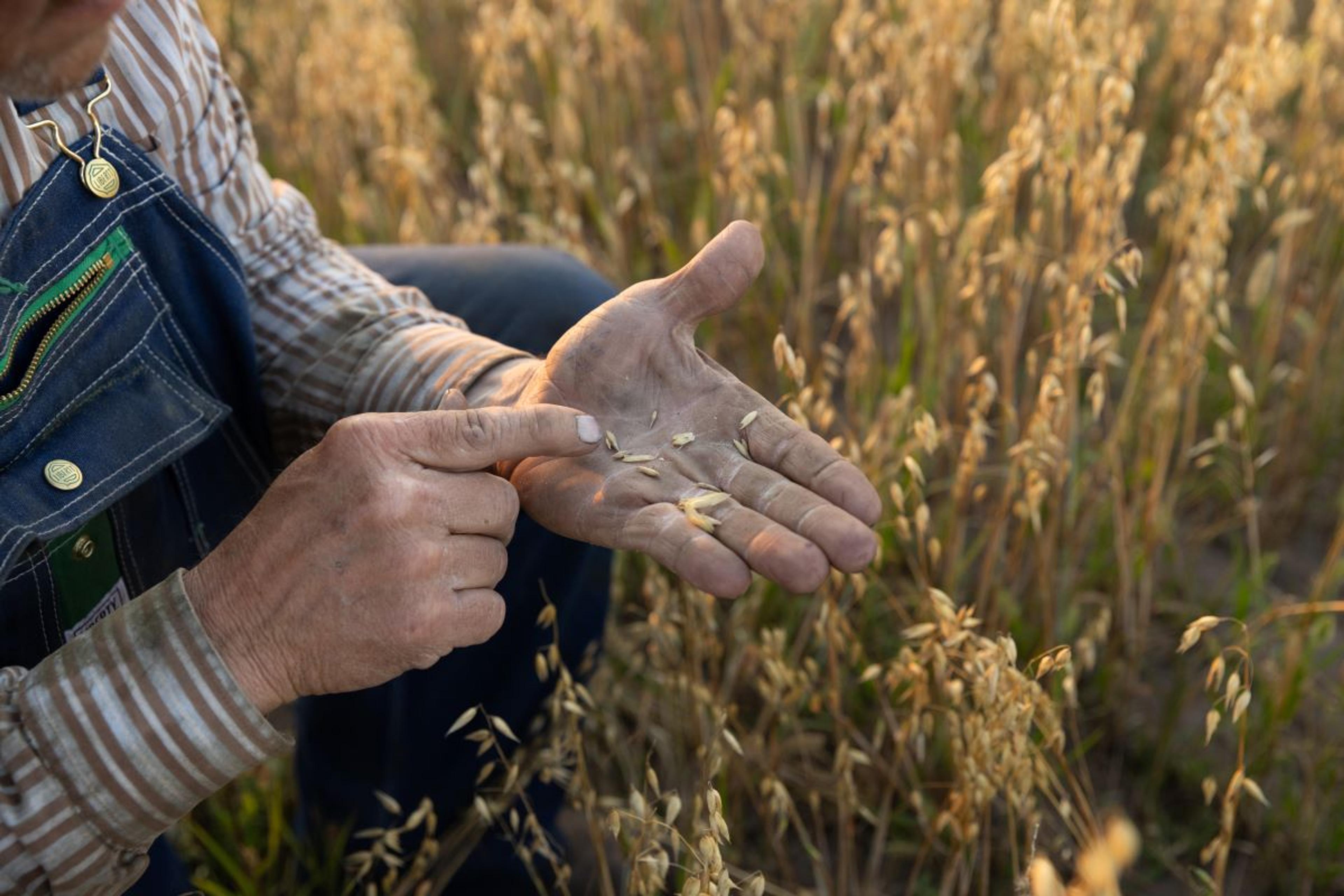
Farming
Introducing Organic Oat Creamers and the Farmers Who Grow the Grain
Organic Valley has always been about more than just dairy, and we are thrilled to introduce our new organic oat creamers! Available in vanilla, caramel, cinnamon spice, and oatmeal cookie flavors, our oat creamers deliver a deliciously smooth experience you can feel good about.
Our farmers know there are ways to grow strong, healthy, organic oats by using fresh air, rain, sunshine, soil, mineralization and organic farming practices.
All the oats in our oat creamers are lovingly grown on our organic family farms in the U.S. heartland where the soil is rich and the temperatures ideal.
In accordance with USDA’s National Organic Program, the organic family farms in our cooperative don’t use toxic pesticides, herbicides or genetically modified organisms on their farms.
Let’s meet a few of the Organic Valley farmers who put care, hard work and years of experience into growing quality, organic oats.
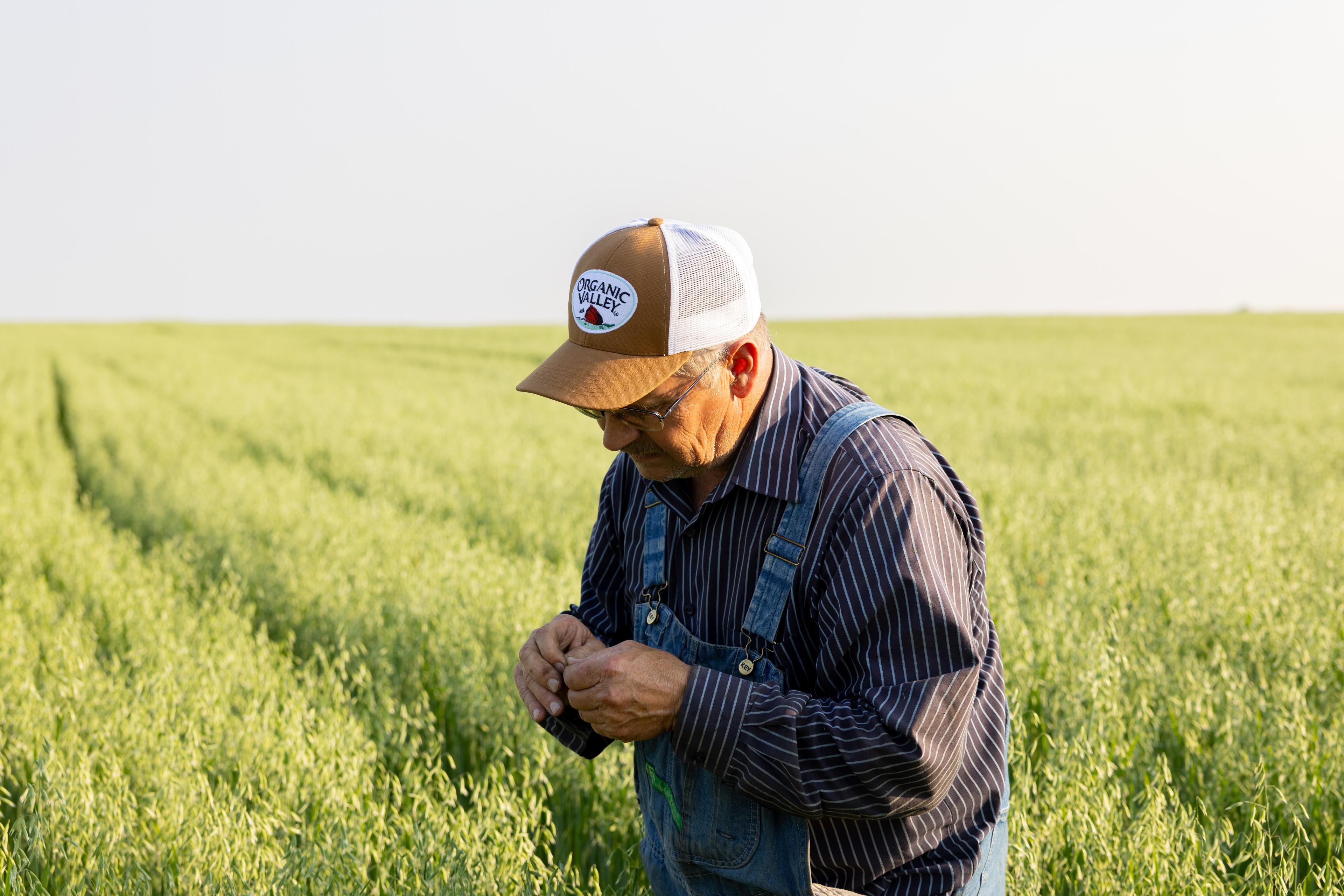
A Fortunate Path
Kevin walks among the rows of maturing oats in his bib overalls. There is a sense of pride as he uses his farm-toughened hands to pull a tiny oat kernel from its hull, and a smile on his face as his wife, daughter and grandchildren join him in the field.
This upper Midwest farmer may not be a coffee-drinker, but he so enjoys the new Organic Valley® oat creamer that he drinks it straight. “In my opinion, when you buy Organic Valley, the taste is second to none,” he said.
Oat is a type of grain that can be used in many forms and products — cereals, oat bran, oatmeal, oat bread, baked goods, and of course, Organic Valley’s tasty new oat creamers! The little oat kernels, after being milled to a perfect consistency, are the key ingredient needed to create our creamers.
Kevin is a fourth-generation farmer who married a farmer’s daughter more than 40 years ago. He said transitioning the farm from conventional to organic was “the best thing I have done.” Organic agriculture is a system of working with nature to produce food without the use of toxic pesticides. GMOs are also a no-no. They are prohibited in organic production to protect the genetic integrity of organisms.
Kevin and his wife Sara are thoughtful in their approach to taking care of the land that provides for their family, and all of us.
“There is no doubt the soil health is better, and it shows in the quality of the crops I can produce,” Kevin said. “The nourishment in the soil supplies the nutrition in products that come off organic land.”
So, how does Kevin grow oats without the agrochemicals used in many conventional farming operations? He says planting the oats thick deters weeds, and then there’s good ol’ hard work! Instead of applying toxic pesticides and herbicides, he puts a light touch on the land, hoeing and cultivating just enough to prevent weeds, while protecting the soil from erosion.
He’s learned much from his many years stewarding the land in an eco-friendly manner, applying his knowledge of organic farming practices and it has paid off.
“It’s nice to see the plants grow, and the work you’ve done and the end results — knowing that you are doing something good — feeding the world organic food,” Kevin said.
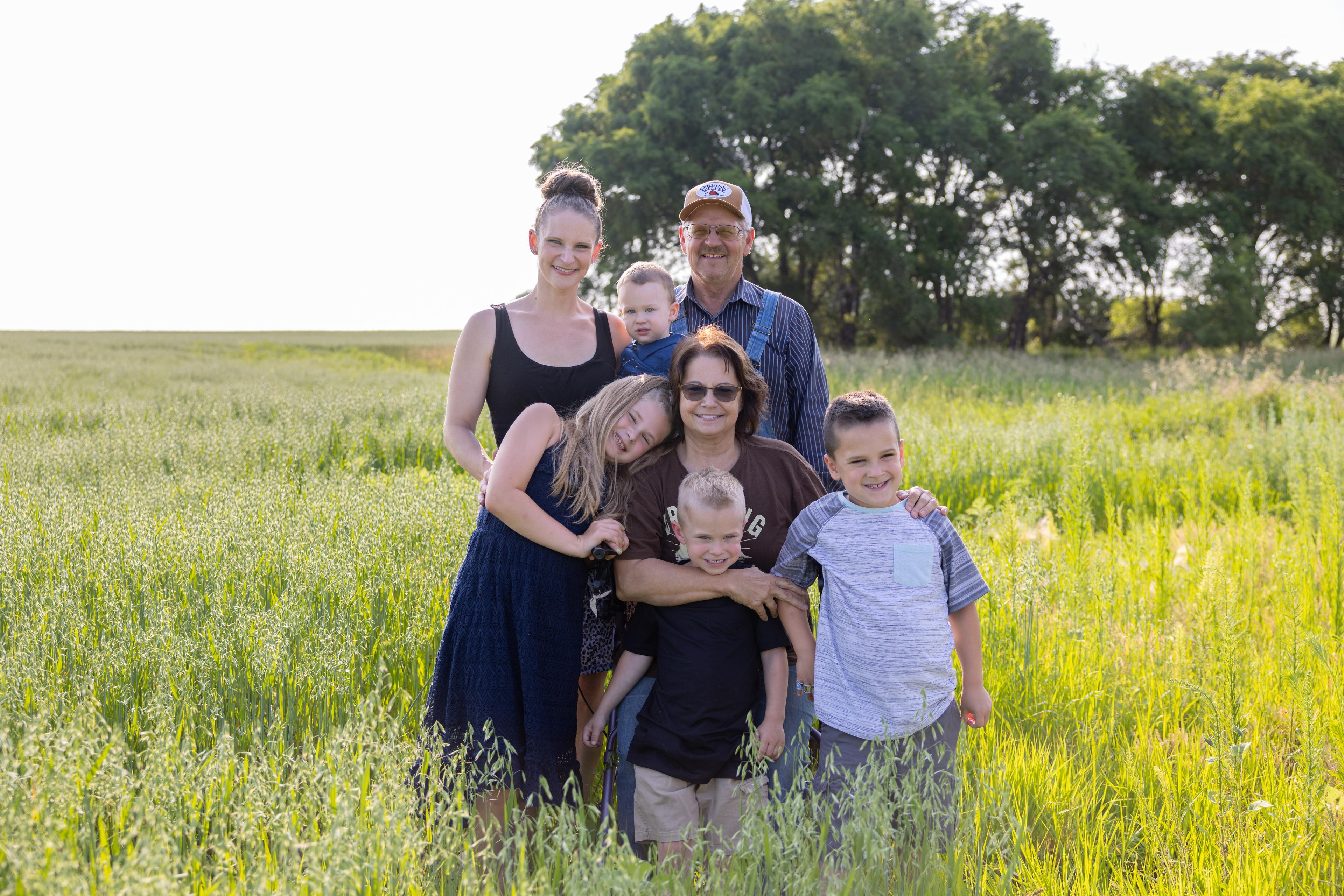
Oats grow well on Kevin’s farm, and the family also grows other organic crops, including barley, flax, hay, kidney beans, black beans, lentils and blue corn used in organic tortilla chips. Kevin is eager to care for each as it needs to be tended. With all the hard work and years of labor, he recognizes how blessed he is to have a way of life that brings him joy — farming and filling bellies with wholesome products.
“It’s my livelihood and my life. I have been here since I was born,” he said of his farm. “I’m glad that this is what I have done. I’m glad I took this path, and I feel very fortunate.”
Organic oats for grain or seed in the U.S. come from about 1,000 farms, with many of them in the heartland.
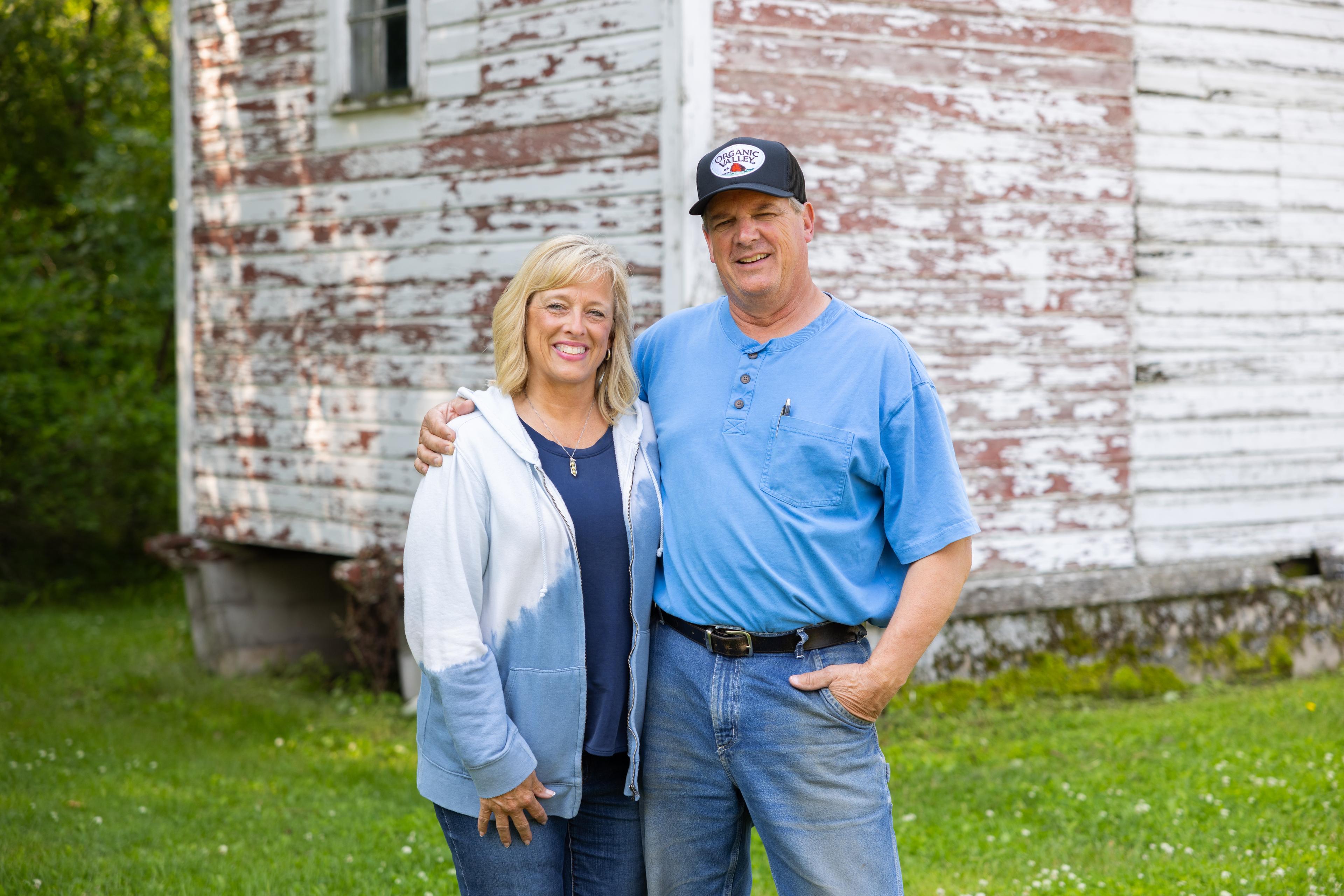
A Lifetime of Playing In the Dirt
About three hours from Kevin’s farm, you will find another Organic Valley member; Robin. Grain provides a backdrop for a few time-worn buildings standing strong next to grain bins and modern sheds on Robin’s farm.
“If you could be in the mud with a stick, you were happy. I figured you wanted to spend your life playing in the dirt, and you did it,” Robin’s mom used to remind him.
Robin, a third-generation farmer, gets to “play in the dirt” nearly every day. He, his wife Karen, and their three daughters, own and operate an organic farm also in the heartland. This farm couple wed in 1996, the same year they purchased the farm from Robin’s father.
In 1998, they started transitioning the farm from conventional to certified organic. They were fully certified in 2001.
“I wanted a career on the farm,” Robin said. “I have loved farming ever since I was a kid. It’s something different every day. You get to be outside, be around nature — you learn a lot.”
Playing in the dirt looks much different now that he is a career farmer. Robin isn’t poking dirt with sticks and throwing mud pies. He is too busy learning about and developing soil health. Not to mention how much energy it takes to prep, plant and harvest crops while running the business end of the farm.
Quality soil is necessary to provide the quality found in Organic Valley® products.
Organic Valley® oat creamers are made using oats that are grown sustainably and organically on our cooperative’s member farms. And because the farms are USDA Certified Organic, organic farmers are never allowed to use synthetic pesticides and herbicides like glyphosate (aka Roundup®), dicamba, chlorpyrifos and many others.
Along with oats, Robin and his family grow alfalfa, black turtle beans, soybeans, yellow corn, yellow peas, field peas, rye and winter wheat. “We can grow a multitude of things.”
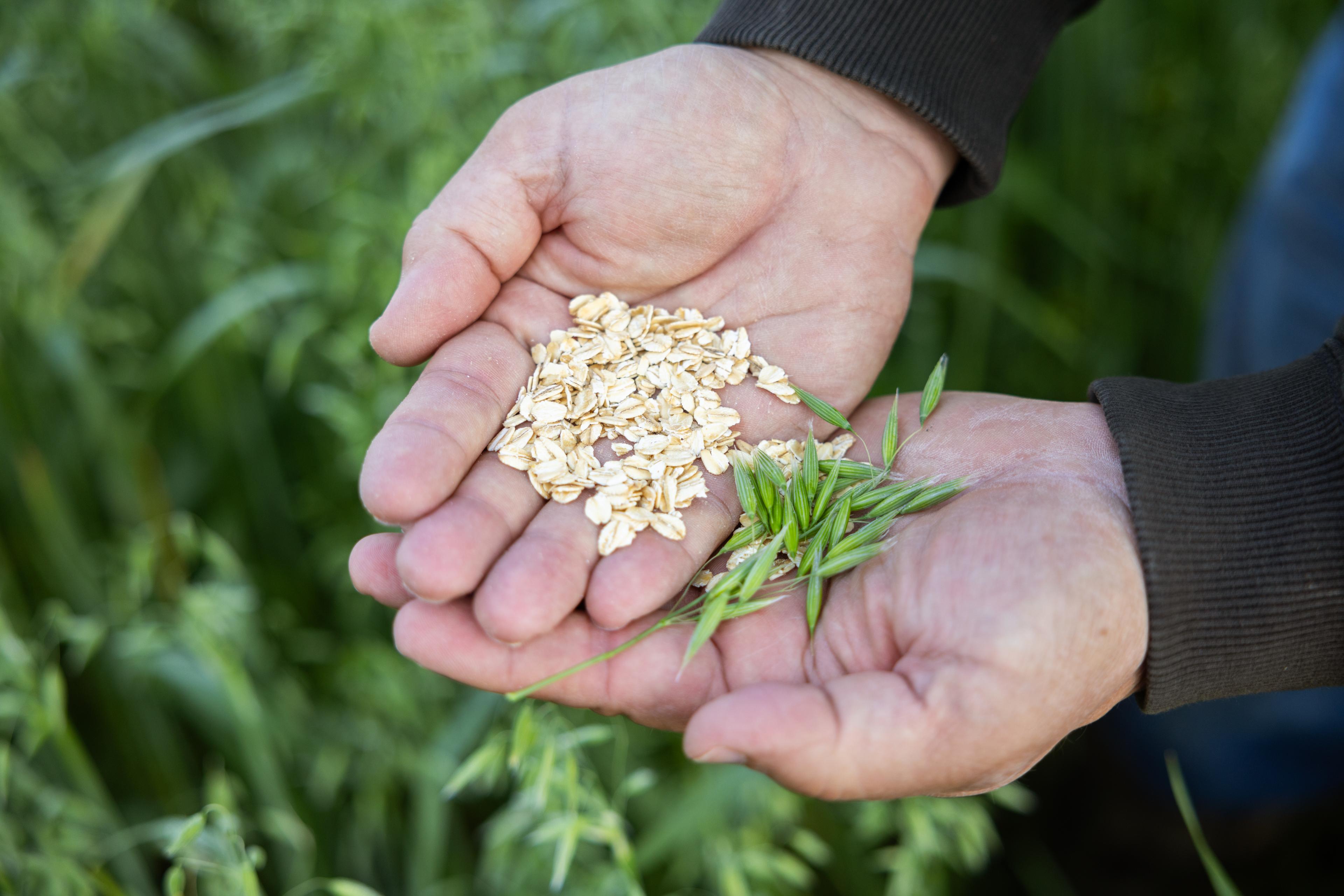
A dedicated land steward, Robin loves to plant oats because they enrich the soil. They leave the chaff (husks and stems) in the field after harvesting the kernels (the edible part of an oat plant). This can help reduce erosion and build organic matter, which contributes to soil health, “So next year hopefully we do better than this year,” Robin said. Simply leaving things be is another way organic farmers can better the land.
There was a time Robin may have had to stop “playing in the dirt.” The 1980s were tough on farmers, with interest rates that reached upward of 18%, putting many farms out of business. Farmers formed Organic Valley in the ‘80s, amid the farm crisis to save family farms.
“At 19, I sat around the kitchen table, and Dad said, ‘You better get an education; we are done farming.’” Robin was not going to let that happen.
“I fought for the farm, or it would be gone. If I didn’t fight for the farm, I wouldn’t have it.”
Robin has never been interested in “going big or getting out,” an option many farmers took. He has no desire to take part in industrial farming — large-scale, intensive operations that often use toxic pesticides and herbicides.
Farming organically may not be the easiest way, but we think it’s the right way. Robin says there are a lot of people who try to farm organically who quit. “The learning curve is steep.” Robin loves to work hard and says it takes more than physical labor to grow quality, organic oats. Farmers use technology and compost teas and take time to learn about humic substances and the role carbon plays.
“What do weeds think of carbon? They absolutely hate it. We take different approaches to achieve a better carbon-to-nitrogen ratio,” Robin said. “If it weren’t for weeds, organic would be easy.”
Using the guidance of Mother Nature, science and experience contribute to the quality oats that go into making Organic Valley® oat creamers. Karen loves the new creamers and says she can drink them straight. Robin is going to up his coffee game because he sure likes the creamers, too. “I will occasionally drink coffee, but now I have more reason to.”
A successful farm and family, a morning cup of coffee and days of playing in the dirt — now that’s a good life.
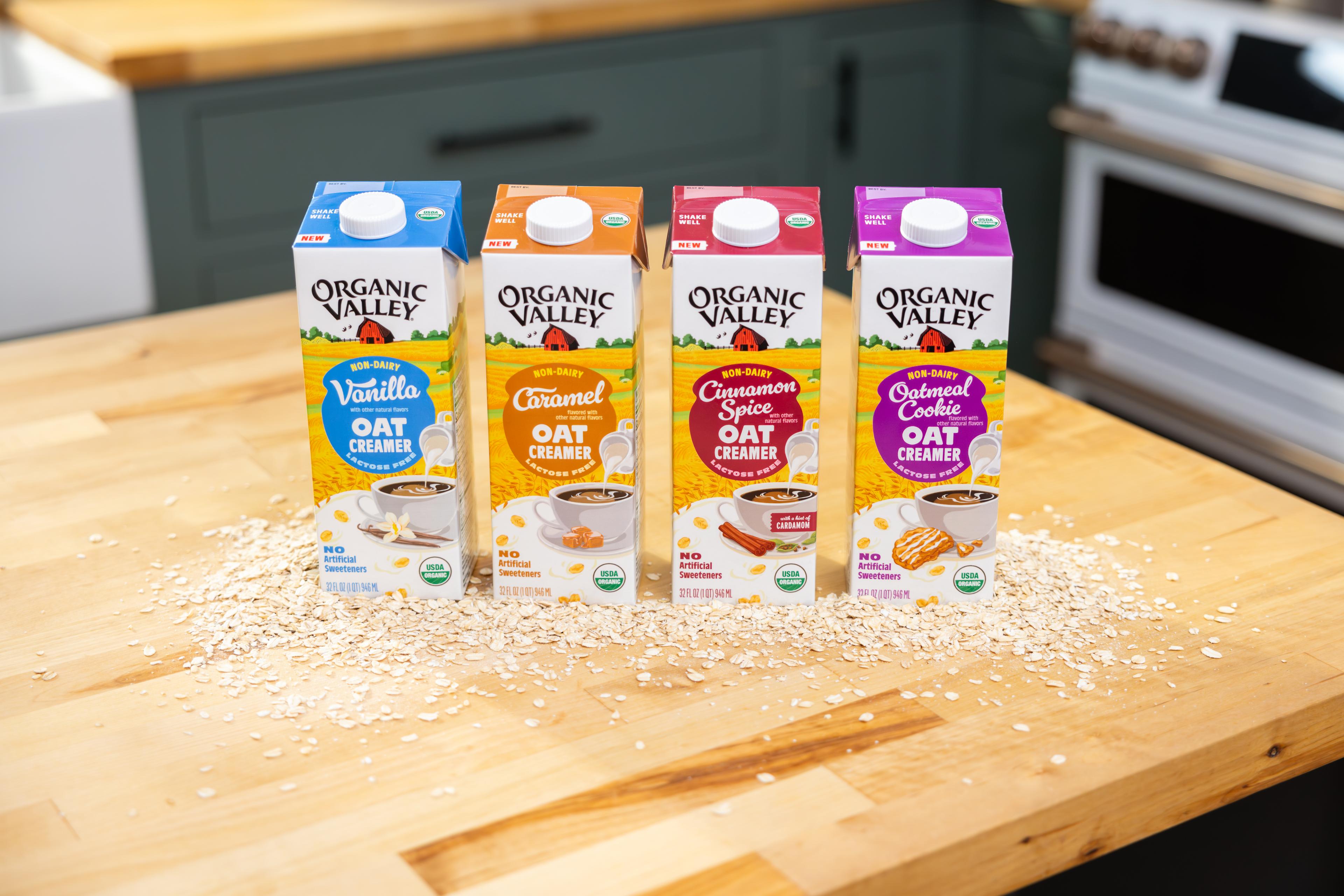
To find Organic Valley® oat creamers near you, visit our store locator. You may need to be patient as our delicious oat creamers are just beginning to hit store shelves.
An antique typewriter fanatic and chicken mom who treasures time outdoors admiring all that nature has to offer, Jennifer McBride is Rootstock’s editor. McBride spent 15-plus years as a journalist and newspaper editor before finding her niche with the nation’s leading organic dairy cooperative. Contact her at Rootstock@organicvalley.com.
Related Articles
- Tags:
- farm life,
- high quality products














